How to Design a Logo Using Paint
Introduction
Businesses, entrepreneurs, corporations, and designers see and think of logos in many different ways. But the best definition for a logo comes from the legendary logo designer, Saul Bass, who crafted the AT&T, United Airlines, and many other iconic logos.
"Logos are a graphic extension of the internal realities of a company." – Saul Bass
A logo is a direct representation of a brand and a company. It's what makes your brand recognizable everywhere around the world. And it's going to take a huge part in building brand loyalty as well.
This puts more responsibility on the designer's shoulders. Since the logo is a permanent part of a brand's identity, it's going to show up in every letterhead, advertisement, business card, flyer, poster, and all the other important documents of the business.
Needless to say, it's crucial that you explore all the basics and the guidelines of logo design before even considering launching Photoshop on your computer.

Why Do You Need a Logo?
The logo is the single most important element of a brand identity. If you look at any successful brand in the world, you'll see this almost immediately. For example, take a look at the logos below and see if you can name the brands by just looking at these wordless pictures.
Isn't it amazing how a simple glimpse at an illustration is enough for you to recognize a brand and the product behind it? That's how powerful a logo can be.
This is why every business and brand needs a logo. To make your brand stand out, to make your business separate from the competition, to make your company recognizable in every country and all cultures.
What Makes a Good Logo?
"Design is the silent ambassador of your brand." – Paul Rand
Your logo will represent your company and your mission. It has to be planned and crafted carefully. However, this doesn't mean your logo has to be geometrically correct. Sometimes, a few flaws can make your logo more unique and authentic.
For example, the new Google logo is also geometrically wrong, but that's part of what makes the brand so unique.
A good logo has to be unique and unlike any other logo design in the world. It should use the colors related to its brand. It has to be relatable to the company. And, more importantly, it has to be easily distinguishable.
What Does A Logo Design Cost?
Much like every other industry, you can also get a logo designed at different prices. If you don't care about the quality of the logo, you could hire a designer on a platform like Fiverr to get a logo designed for just $5 dollars.
Or, you can hire a legendary designer for about $100,000, which is what Steve Jobs paid to hire Paul Rand to design the logo for NeXT.
Of course, you shouldn't spend that kind of money on a logo even if you have the budget. There are other ways to design a logo. You can use online tools, pre-made templates, hire freelancers, and more.
- Online Logo Design Tools: Cost $29+
- Use A Pre-Made Template: Cost $16+
- Hire A Designer: Cost $150+
- Hire A Design Agency: $1,000+
There are many online tools for designing a logo at affordable prices. You can grab a pre-made logo template for about $20. Or you can hire a freelance designer.
The prices for hiring a freelancer could range from $150 to $2,500, depending on the skill level of the professional. And it will cost more than $2,500 to hire a design agency.
Logo Formats & Specifications
There's a debate around the specifications of logo design. While some believe logos should be geometrically correct others think logos have to be more creatively unique.
A good compromise is to follow Google's strategy. You can create a unique logo design while keeping geometric accuracy by using proper measurements in the design. This makes it easier to reproduce the logo.
That's where logo formats also come to the discussion.
- JPG format: Best for print purposes like letterheads and brochures
- PNG format: Best for online purposes like social media and websites
- SVG format: Best for websites, web apps, and responsive interfaces
- TIFF format: A high-quality uncompressed file best for print designs.
- PDF format: Best for print designs.
- Adobe Illustrator (AI) format: A customizable vector file of the design.
- EPS format: An editable vector file that works with multiple vector editing apps.
Today, a logo needs to be compatible with both print and digital use cases. You can't just design a logo in Adobe Illustrator and save it as a vector file. You also have to consider other uses of the logo.
For example, the same logo design has to be used when designing an Android or an iOS app. Importing a vector logo into an app is not an easy task. So it's important to generate your logo design in multiple formats, including EPS, AI, PDF, and even SVG.
Does "Free Logo Design" Exist?
We always try to look for a free alternative whenever we have to spend money on something. Of course, you can also get a logo designed for free as well.
There are many free online logo generator tools you can use to instantly create a simple logo. You can also download free logo templates to customize and create logos for different types of businesses within a few minutes.
Keep in mind, these free tools and templates are being used by thousands of other businesses. Chances are you'll end up with a logo design similar to the logo of another shady business.
Don't cheap out. Even if you're using a template, or a logo builder, spending a few dollars on a premium version will reward you well in the long run. Think of your brand logo as a long-term investment. It's going to be part of your business for a very long time.
Things To Know Before Designing A Logo
Before we get to the nitty-gritty of logo design, here are a few things you should keep in mind.
Scalability Is Important
Unlike many other types of designs, a logo design is something that could be used anywhere and everywhere. It may end up printed on large scale on a billboard or on a tiny wearable screen in a smartwatch app.
Keep this in mind before you get started on your logo design. Your logo needs to be scalable to various sizes. For starters, create your design in vector format.
Minimalism Never Goes Out Of Style
Imagine having to print a logo with so much detail in a smaller size. Like printing the logo on a pen or a small product label. It will certainly make those tiny details blurry and hard to notice.
Especially in the modern day and age ruled by small mobile screens, you should always consider using a minimalist logo design that's clearly visible no matter its size.
Even Starbucks started out with a complex logo design. And the company recently revamped the logo into something more simple without text and with just two colors.
Aim for a simple, clean, and less sophisticated design to make your logo more practical and effective.
Avoid Effects
Following up on the previous point, you should also avoid using effects in your logos to make it transferrable in various mediums.
For example, your logo is likely to be printed on documents and newspapers in black in white. Effects like shadows and gradients never transfer in such cases.
This is especially important when picking colors as well. Ask yourself this question— Would your logo look just as unique and recognizable in black and white without its colors and effects?
Get Creative But Follow Standards
Logo design is one of the niches in the design industry where designers are encouraged to be creative and think outside the box. However, you should also know the limits to keep that creativity in check.
There are certain standards and rules you need to follow in order to design a professional and practical logo. Like creating a logo that represents the brand in the long-term. And designing a logo that resonates with the target audience.
Planning & Research

The first step in your logo design process is planning and doing the research on how you want to approach the design, how it will be used, and how it will relate to your brand identity.
What Is Your Brand Identity And Voice?
Have you ever noticed how most brands use the same colors, same design style, and the same font across all of their brand-related content such as website design, print documents, advertisements, and more?
That's because keeping a consistent design across all types of designs is extremely important in creating and maintaining a brand identity.
A great example of this is MailChimp, which recently did a complete overhaul of its brand identity and brand design that not only looks stunning but also make sure the brand stay relevant in the ever-changing world of design trends. The company also did a redesign of their logo as a part of this new brand identity design as well.
It's important that you consider your brand design style when crafting a logo to make sure it's relatable to your brand identity. You should use the same colors and fonts used by your brand design for the logo as well.
If you don't have a brand style guide or not sure what a brand style guide is, you can take a look at some of the best examples of brand style guides and take inspiration from them.
- MailChimp brand style guide
- Medium brand style guide
- Spotify brand style guide
- NASA brand style guide
- Cisco brand style guide
Where Will Your Logo Be Used?
As we've mentioned earlier in the logo formats section, what type of logo formats you need to create will depend on how you're going to be using the logo.
For example, a logo that will be mostly used in print design should be designed using CMYK colors. And a logo for a web app can be crafted in SVG format for better scalability.
Grab a pen and paper and try to list how you're going to use the logo and then you'll be able to determine which logo formats to create, what colors to use, and how flexible the logo needs to be in terms of scalability.
5 Ways to Find Logo Design Inspiration & Ideas
"Good artists copy; great artists steal." – Steve Jobs
A logo is something that needs to be completely unique and original. But, this doesn't mean you can't steal a few good ideas from some successful brands and companies.
Of course, we're not encouraging you to copy logo designs from other brands. We're just showing you ways you can get inspired by adopting the best techniques used by other designers when crafting your own logo.
Here are a few ways you can find inspiration for your logo design.
1. Browse Behance & Dribbble
Behance and Dribbble are two of the most popular platforms that allow users to create portfolios and showcase their best work. As a result, the sites are filled with different types of designs created by other professionals, including logo designs.
Start searching for logo designs and see how designers use different styles of colors, fonts, symbols, and shapes to craft unique logos.
2. Create Moodboards
Moodboards are great for quickly finding inspiration. If you have a particular theme in mind for your logo design, you can find images and designs related to the theme and create a moodboard.
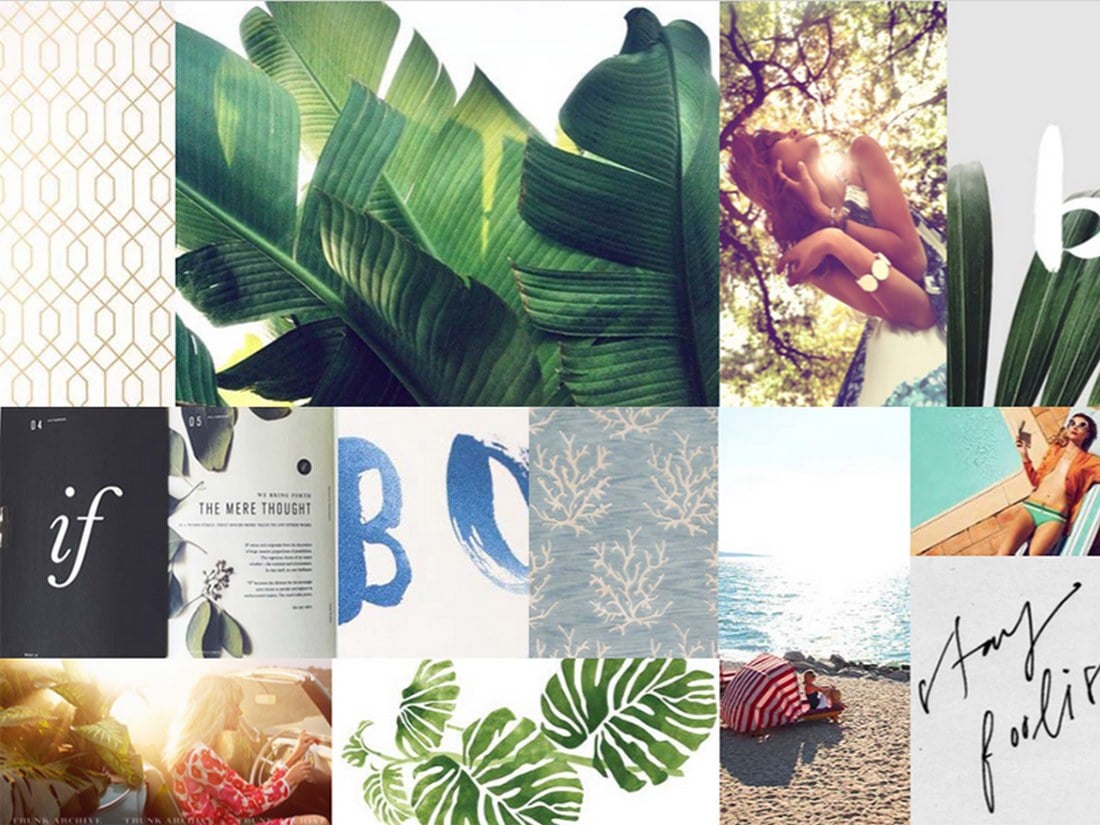
Example mood board by helium creative
For example, if you're working on a logo for a luxury brand, you can collect images of luxury product advertisements, promotions, and more from magazines, newspapers, and websites to create moodboards. Then study the moodboards to find inspiration for your own designs.
3. Browse Marketplaces
Did you know that designers actually create and sell logo designs online? You can find these customizable logo templates on marketplaces such as Envato Elements and GraphicRiver.
Browse the templates on these marketplaces and you'll be able to find inspiration from various styles of logo designs and niches.
4. Start Doodling
You know how writers carry a notepad to jot down their ideas? Well, you can do the same to come up with great logo design ideas as well.
Carry a notebook in your pocket wherever you go. Whenever you see or think of something creative and inspiring, doodle it on your notepad. Doodle as much as you can. You'll be able to come up with more than just a handful of logo ideas with this method.
5. Ask A Designer
You can also get in touch with a professional logo designer and ask for their advice. They'll give you tips on how to find inspiration, logo design standards, and more.
Try sending a message to a designer on a social network like Twitter, LinkedIn, or Behance. Don't be afraid to ask for help.
Create a Logo Concept & Specification

Once you have an idea on how to approach your logo design, how it integrates with your brand design and the right layout in mind, you can put all of that into a logo concept to see how it would look like.
To create a logo concept, you need to understand how designs trends are used in logo designs and how different brands use different logo types. This will help you pick the right design for your own brand logo.
Choosing a Logo Type
There are a wide variety of logo types used by different brands and businesses. And it often changes from one industry to another. In general, there are 5 main categories of logo types:
- Symbols
- Wordmark
- Lettermark
- Combination
- Emblem
Depending on the type of business you have, you can pick one of these categories to create your logo. To better understand how these logos function in different industries, let's take a closer look at these logo categories.
Symbols

Symbol (or pictorial) logos are one of the most common logos used by big brands and corporations. A symbol logo features an icon or image with a customized design. Like the half-eaten Apple logo. This is the type of logo brands use to represent their bold views in a simpler way.
Nike, Apple, Audi, Mercedes Benz are some of the best examples of symbol logos. This type of logos is best for large international brands since symbols can be easily recognized without any language barriers.
To give you an idea of how a symbol logo can be crafted for your brand, here's an example logo template that you can also download and use as your own logo.

Wordmark
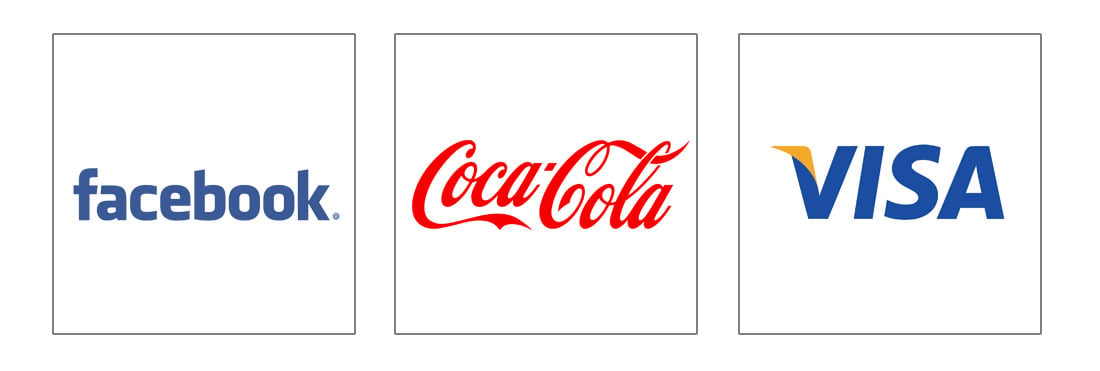
Wordmark (or logotype) logo is a type of logo that simply uses a clean and clear word or name as the logo. Use this type of a logo if you're creating a new brand and want it to be easily recognizable.
In most cases, you'll need to use a unique font of your own to design a wordmark logo. Most companies that use wordmark logos, like Coca-Cola, Google, Visa, eBay, and Facebook have created unique fonts for the logos.
Here's what a wordmark logo may look like.
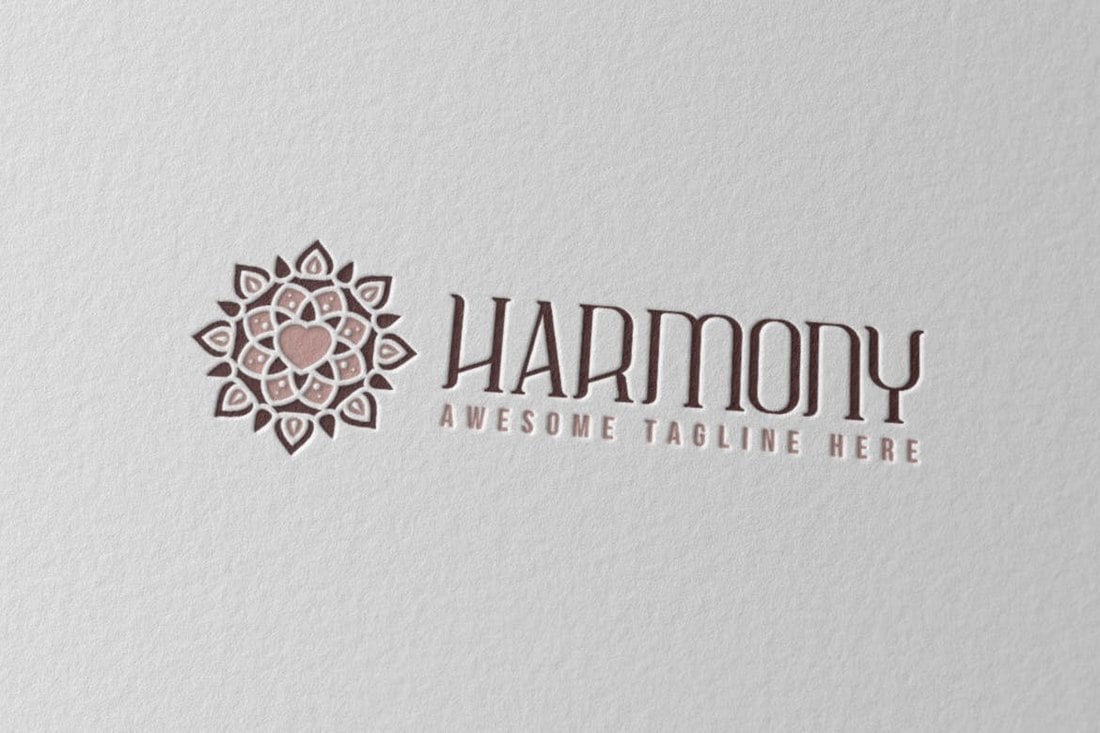
Lettermark

Lettermark (or monogram) logo is quite similar to a wordmark logo. However, a lettermark logo is a lot shorter. Most of the time, a lettermark logo is created using the initials of the company name and combining them into a unique logo design.
For example, NASA, Chanel, New York Yankees, IBM, all use lettermark logos. The font you use for a lettermark logo is important, but it doesn't have to be unique to your brand like a wordmark logo. You can use a common font and still make a lettermark logo if you can think outside the box.
Lettermark logos are often used to simplify a long or a hard-to-pronounce company name and make it easier to remember.
Like this example lettermark logo template.

Combination

You can also create a logo by combining two other logo categories. This type of logos is called combination mark logo.
For example, you can combine a symbol with a wordmark to create a unique logo like Adidas, Pepsi, and Burger King. Or, you can also combine a lettermark with a symbol or an emblem, like Warner Brothers, HBO, and LG.
This type of logos is mainly used by established brands as a way to take the branding to the next level and to make it easier use in various promotional material.
For example, PayPal recently introduced a new logo because its wordmark logo was difficult to use across different platforms like on mobile apps. So the company made a simpler logo with a combination of a lettermark and a wordmark.
Here's what a combination mark logo would look like for your brand.
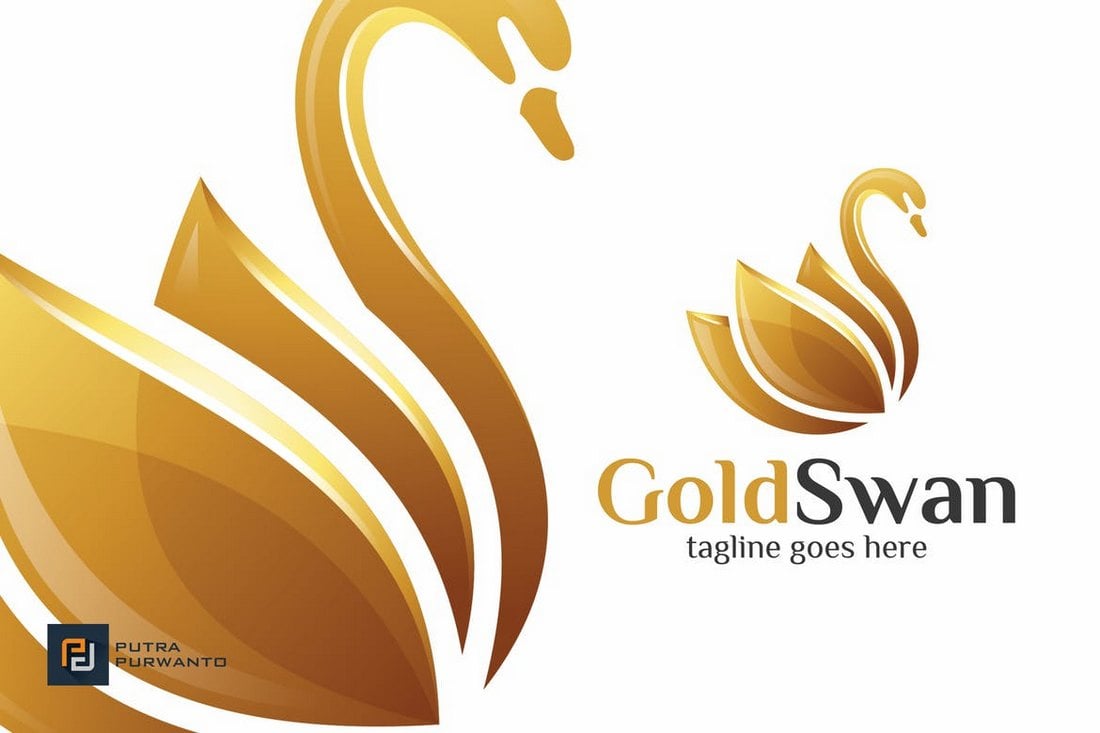
Emblem
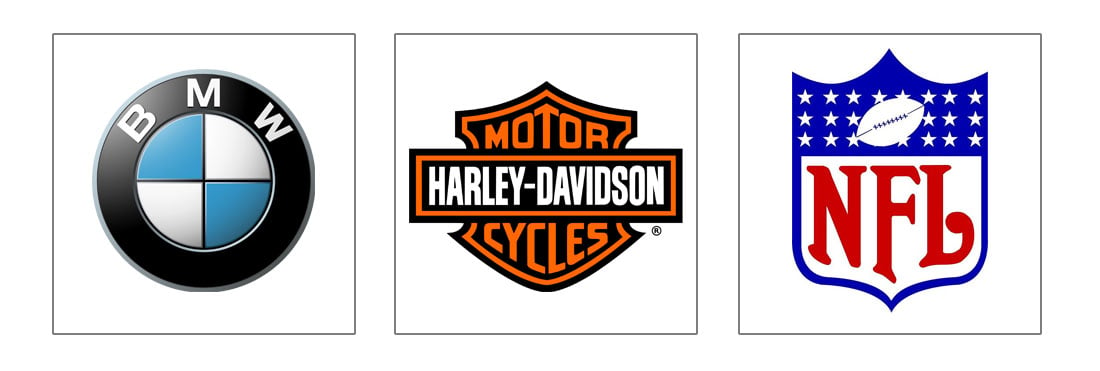
Just as it sounds, an emblem logo is an iconic logo design that features a more complicated design that captures the brand into a shield or a badge like layout. Harley Davidson, Starbucks, NFL, and BMW are examples of emblem logo designs.
These logos are used by companies to show their attention to detail attitude and quality. Of course, these logos are also quite difficult to replicate so it will be unique to your brand.
The only downside to emblem logos is that they may become difficult to use in smaller brand assets when shrunk down, like on a business card.
Although, if you were to use an emblem design like the one on this example template, resizing won't affect the clearness or readability.

Other Logo Types
There are also several other types of logos you can use to design a unique or creative logo.
For example, you can create a Mascot logo for your brand. Like the mascot used by Android, KFC colonel, and MailChimp's monkey. Mascot logos are perfect for businesses with creative and user-friendly brand identities, especially ones that target children.
The next step in your logo design process is to pick a design style for your logo.
Choosing a Style or Trend
Trends in the world of design are something that never stops changing. You'll see some sort of new design trend almost every year. However, when it comes to logo design trends, there's been a few that never went out of style.
Minimal Logo Design
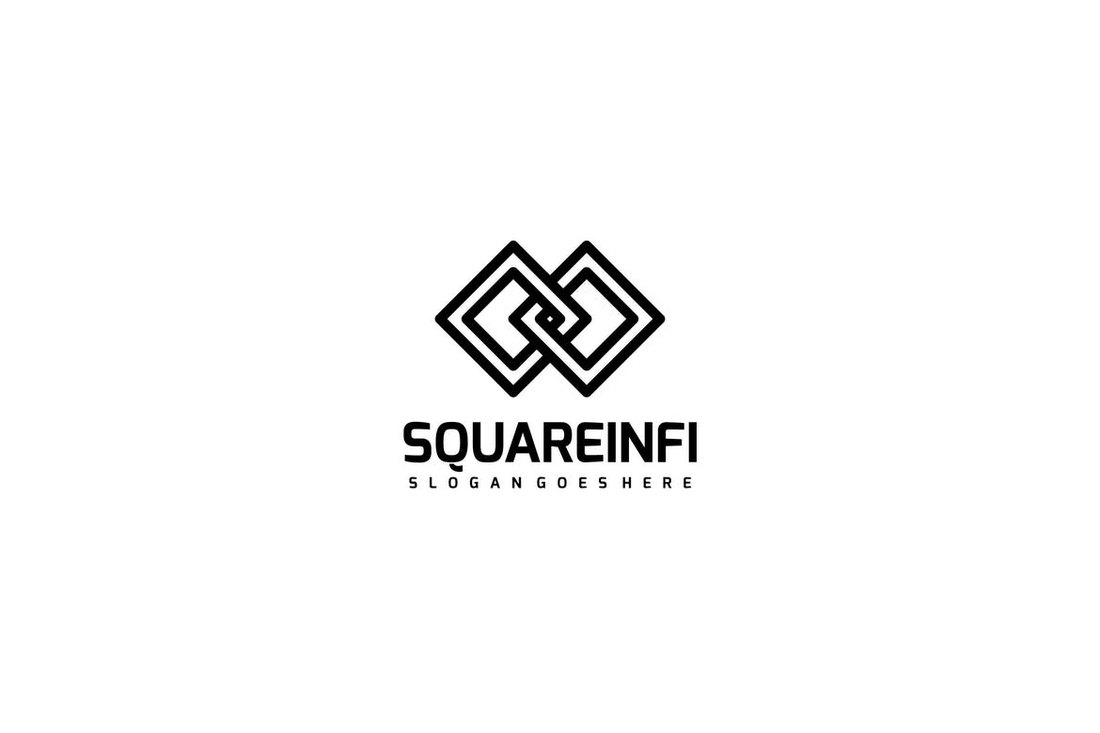
Minimalist logo design trend has been around for decades and it's one of the few trends that will make your brand look relevant and professional the older it gets.
A minimal logo design is all about using less of everything. They use fewer colors, clean fonts, simple symbols, and most of the minimal logos are often black and white.
Uber, Nike, and Wikipedia are some of the brands that use beautiful minimalist logos.
As you may have noticed, minimal logos are mostly used by luxury brands and high-end corporations. Because it's a timeless design trend that never goes out of style, just like James Bond.
Colorful Logo Design
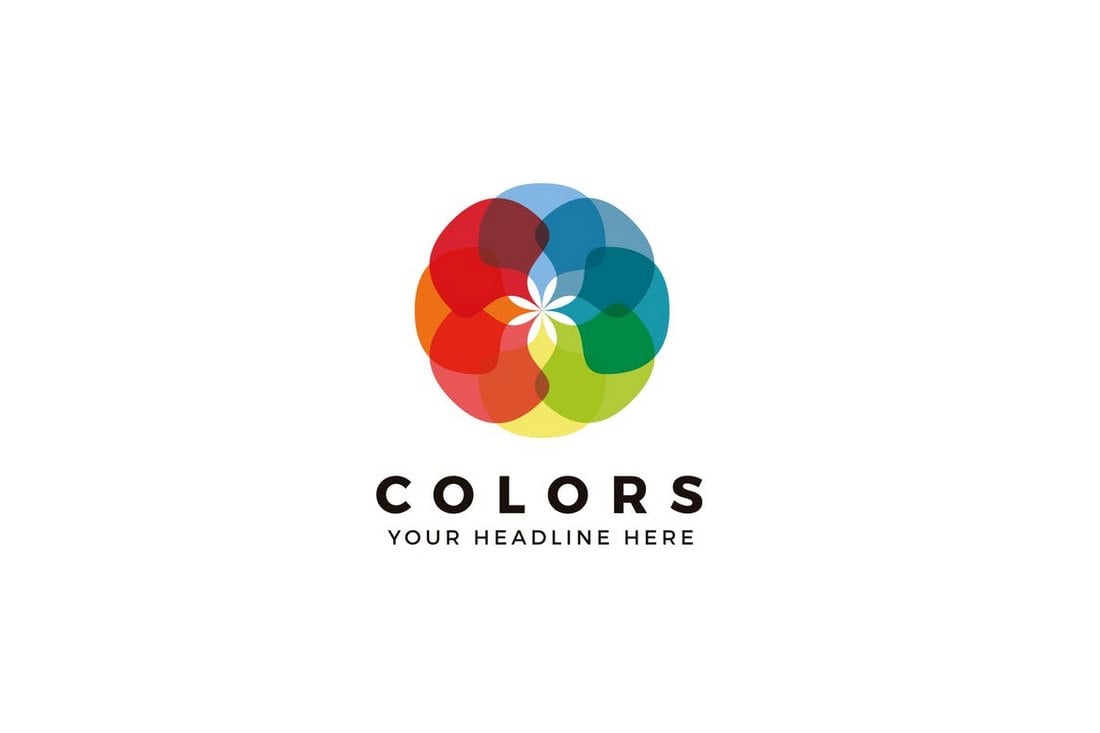
You would think that using lots of colors is a bad design practice but it's quite the opposite. Many brands and businesses have been using colorful logo designs and these colors actually made their logos more iconic as well.
NBC, Google, eBay, and many others use colorful logo designs. However, this design trend is mainly used by multi-corporations or businesses that cover multi-categories to show the broadness of the company.
For example, eBay hosts dozens of product categories and host thousands of vendors on the platform. And, before Alphabet, Google was the parent company that managed all of its subsidiaries, like Gmail, Google+, and Android.
Using a multi-colored design is also great to convey openness and to show that you're a brand without gender, race, language, or culture gaps.
Abstract Logo Design
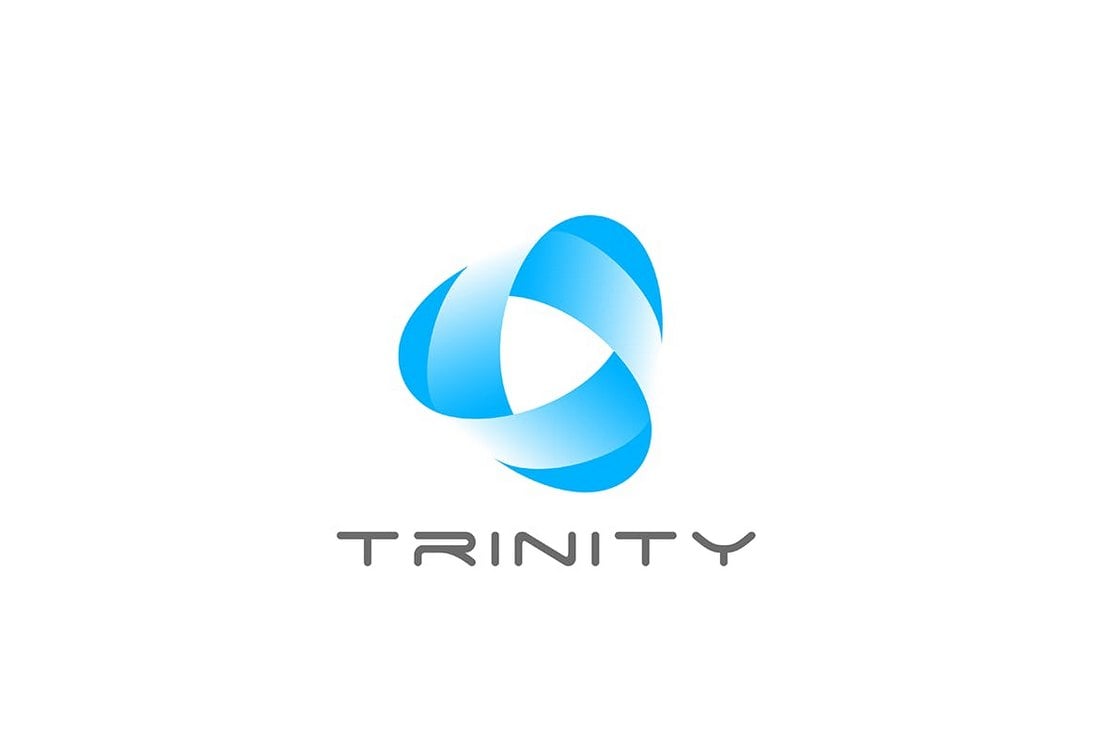
Abstract logo design works just as advertised. This style of logos usually uses abstract shapes and elements for creating unique logo designs.
Pepsi, Adidas, Airbnb, and many new and established brands use the abstract style of logos.
With an abstract logo design, you'll have more freedom to explore different styles and designs to create a logo that gives a unique identity to your brand.
Retro & Vintage Logo Design

If you're planning on using a monogram or emblem type of design for your logo, it's worth considering using a retro or a vintage style to craft the logo.
Even some of the modern brands and startups use the vintage style of logos to make their brands look more authentic and original. It also seems to have a strong effect on building authority and trust.
At first glance, anyone who looks at a vintage logo will believe your brand has been around for at least a few decades. This is probably one of the secrets behind the massive success of brands like Dollar Shave Club.
Creative & Fun Logo Design

Brands and startups that like to get a bit more creative usually make their logos more memorable by making them look fun and quirky. Like the MailChimp logo, RedBull, or the Duolingo logo.
Making your logo look fun is easier when you add a mascot, but you don't have to. Doritos uses an emblem-style logo and yet they've managed to make it look fun as well.
If you're willing to think outside the box, using this trend could help make your brand stand out and more memorable even in a populated industry.
Choosing Your Logo Font
Choosing a font for your logo design is another important part of a logo design. This is also where many designers make the wrong decisions. Since there are so many choices in fonts, it's easy to get distracted.
Some of the most popular font types used in logo design are:
- Signature Fonts
- Handwritten Fonts
- Monogram Fonts
- Blackletter Fonts
- Decorative Fonts
Signature Fonts
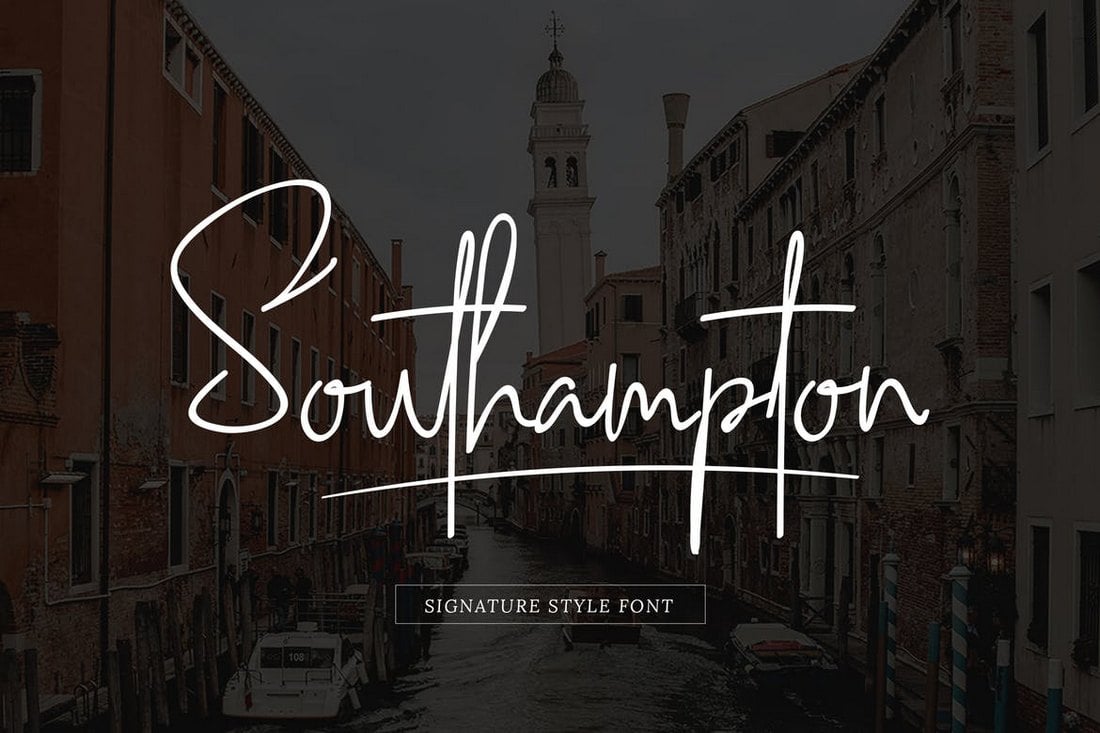
Signature fonts are the type of fonts that make your text look like a handwritten signature. This style of fonts is used in wordmark logos to give them an authentic look. A signature is something that's quite unique to only yourself, these fonts do just that for many brands, including Cadbury and Kelloggs.
Handwritten & Script Fonts

Handwritten and script fonts are very similar to signature fonts, except these fonts have better readability and casual looks. Some of the most iconic brand logos, such as Disney and Virgin use handwritten fonts. It's the ideal type of font that targets general audiences.
Monogram Fonts
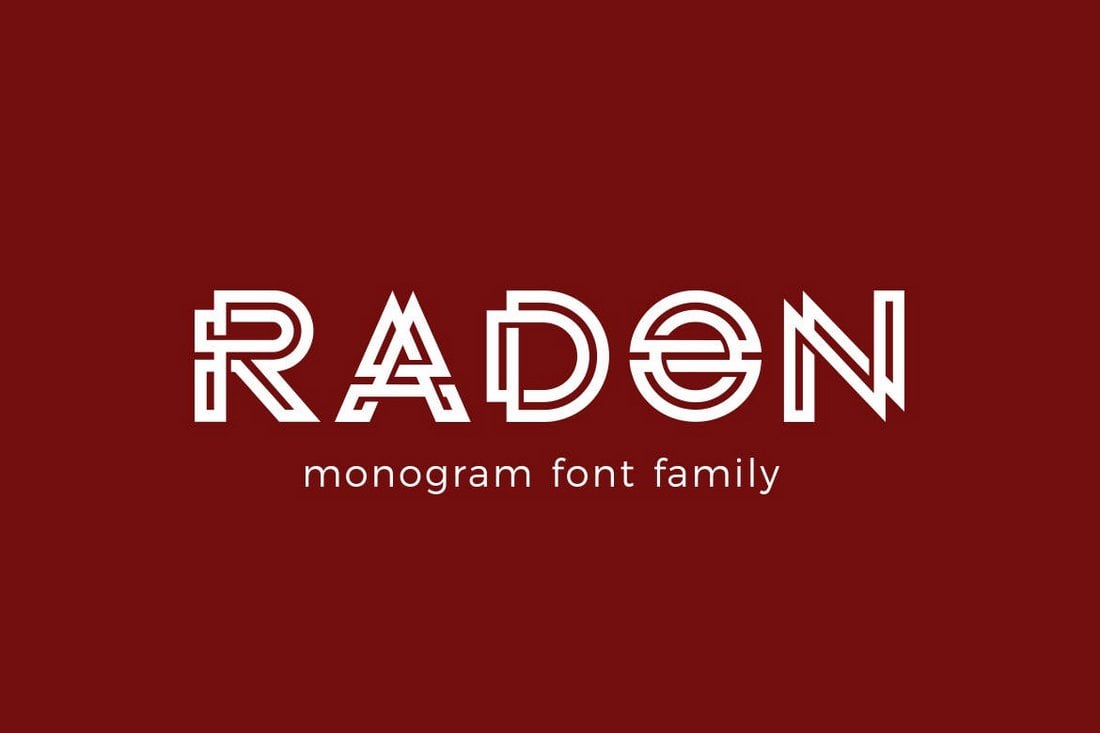
Monogram fonts are the type of fonts that are used to design monogram logos. Simply put, monogram fonts come with a unique style of characters that help you create monogram logos more easily.
Vintage Fonts
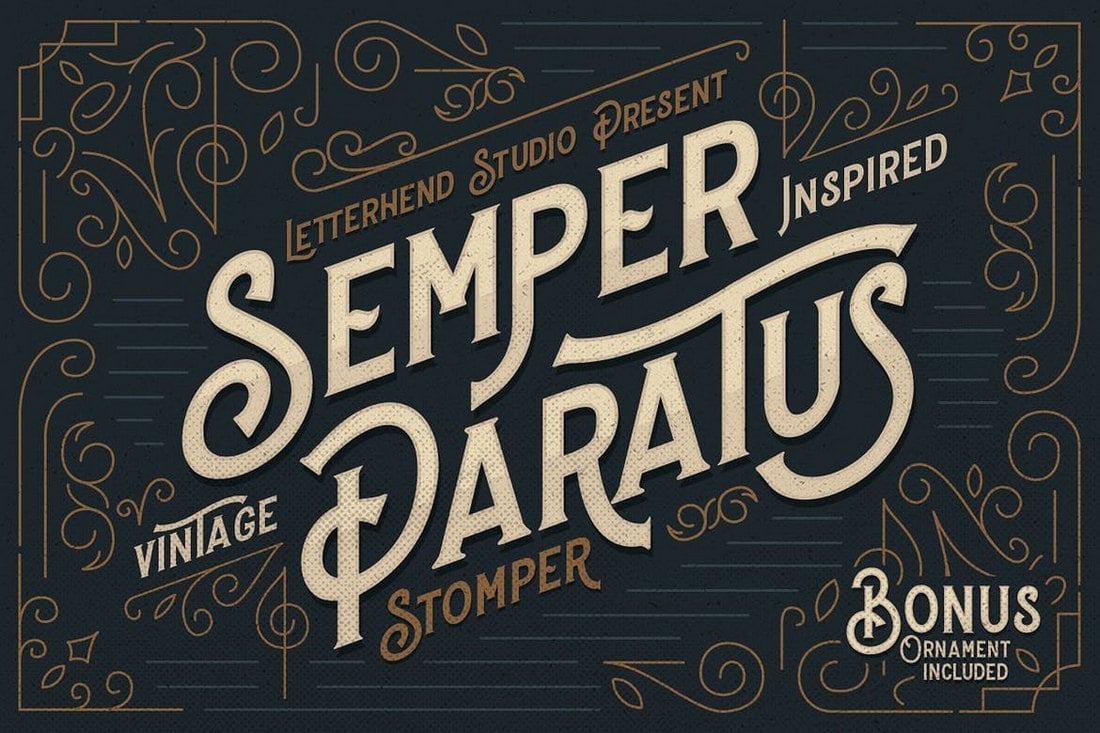
Vintage fonts also feature a specific design style that will go along well with your vintage and retro logo designs. These fonts feature old-school designs inspired by the signage and posters from the early 1900s.
Decorative Fonts
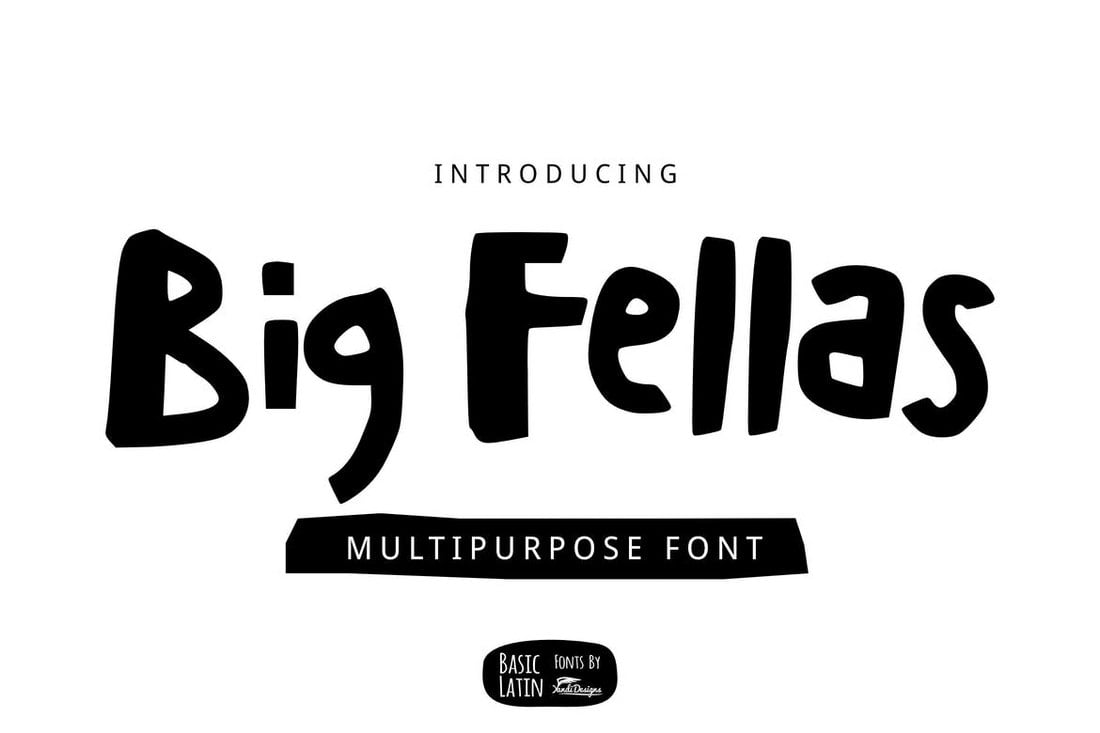
Decorative fonts have various design styles and they are used to design different types of brand and business logos. You'll see decorative fonts in many forms, from the font used by Baskin Robbins to Subway and more. It's the kind of font that's more suitable for casual and general brands.
When choosing a logo font, there are two important things to keep in mind:
- Never pick a font that looks too obscure. You might think a font that hasn't used before may help get more attention, but it will never make your brand look good.
- Use no more than 2 different fonts in your logo design. Try to stick with just one font for your logo. If your logo has a secondary slogan or a similar aspect, consider using a second font. But no more than 2 fonts!
Choosing Your Logo Colour
Picking the right colors for your logo design requires careful research and attention. While it seems like an obvious choice, never pick colors at random.
Colors have a more powerful effect on the human mind. According to color psychology, different colors have the power to evoke specific emotions and behaviors in humans. You also need to make the colors match your brand design. And there are different color groups and trends that you need to be aware of.
Color Groups & Palettes
The color theory and the color wheel suggests three main color groups:
- Primary: Red, Yellow, and Blue colors make the primary color group.
- Secondary: Green, Orange, and Purple belong in the secondary
- Tertiary: The colors you get when you mix primary and secondary colors are in the tertiary group.
There are also various color trends and color palettes, like flat design colors, material design colors, metro colors, and more.
Make sure the colors you choose for the logo can relate to a color group to make it a professional and an accurately designed logo. Also, you should consider using a flat color for the logo like black or white if you plan on using it as a watermark for videos.
Tools For Creating A Color Palette
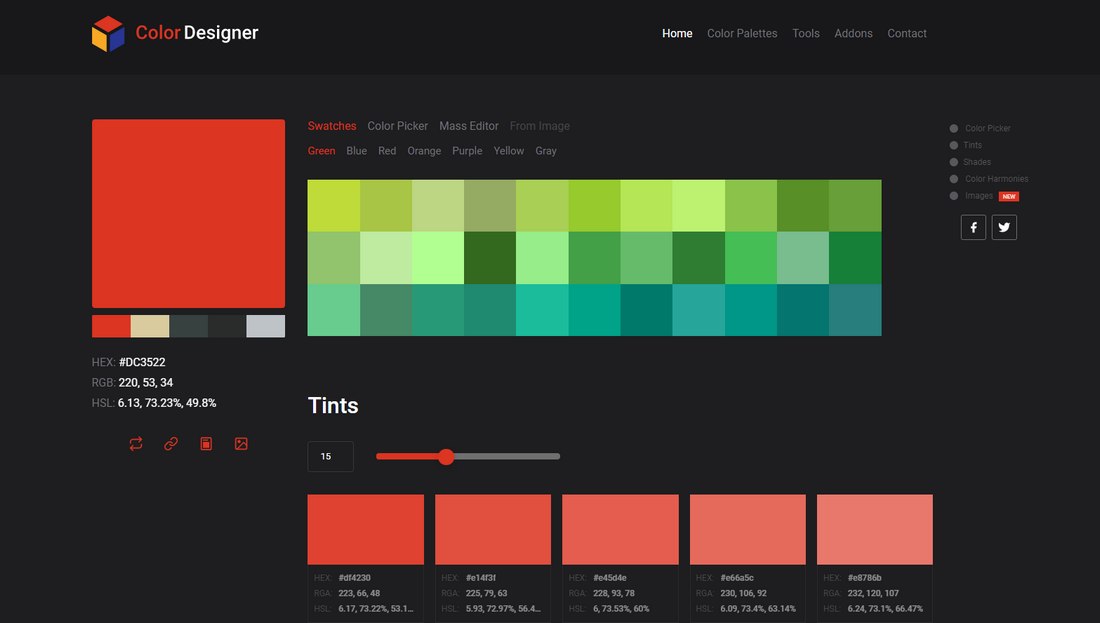
There are also plenty of great tools you can use to come up with a proper color palette. These are just a few free online tools you can try.
- Coolors.co
- Colormind
- Color Designer
- Adobe Color Wheel
- BrandColors
Consider The Logo Background
Another important part of choosing colors is the background of your logo. Try to determine how your logo will be used, on what kind of paper it will be printed, what's the website's background look like, etc.
Knowing how color works is part of designing a professional logo. It will help make your final design look more authentic and technically accurate.
A good rule of thumb is to design multiple versions of logos using different colors. That way you'll always have a backup option if you decide to change the background color of your website or app.
Using a Logo Grid

The logo grid is a system designers use to craft technically and geometrically accurate logo designs. When using the grid system, you make sure that all lines, curves, and shapes in the design are constructed to perfection.
While some designers use square grids, there are designs that also use circular grids as well. Basically, the main idea of using a logo grid is to make the design accurate and to make sure that it can be easily replicated.
It's actually a complicated system that needs careful studying. You can read our detailed guide to learn more about logo grids.
Test Your Design Concept
Of course, designing the logo concept is only the first step in your logo design process. Now you need to figure out if it matches your brand, business, and core principles.
The best way to do that is to test your concept design using a focus group. There's no need to find volunteers for this job, just use your social media channels.
Show your logo concept to your fans and customers. Show it to your team. Ask for their feedback.
There are also plenty of design-related groups and communities on Facebook, LinkedIn, and Behance you can use to get feedback from professionals as well.
Time to Choose: DIY or Hire a Designer?
Now that you have a proper understanding of how logo design work, now it's time to make the decision on how you're going to design the logo.
Mainly, there are two ways you can get your logo designed:
- You can design the logo by yourself.
- You can hire a freelance designer to design the logo for you.
If you're making a logo for a new website, blog, magazine, or a small business, you should choose the DIY method. Logo designers aren't cheap. By designing the logo yourself, you'll be able to save a lot of money that you can invest in growing your business.
If you're making a logo for an international brand or a corporation, you should consider hiring a professional. They'll make sure your logo is crafted to perfection.
We'll walk you through both these methods in more detail. Before jumping to conclusions, read through both sections and see which method seems like the best approach for your project.
Designing Your Own Logo

Even though it seems like a daunting task, designing a logo is not that difficult. These days, you don't even need expert Photoshop skills to design a logo. There are many online tools and template kits you can use to craft your own logo within minutes.
Besides, you already learned a lot about logo design by reading through this guide. You might as well design the logo yourself, right? Well, let's get started.
Logo Maker Software & Tools
Using an online tool is probably the best way to design a logo, especially when you're new to design. Since these tools are quite easy to understand, even someone without any design knowledge can use them to quickly put together a logo within a few minutes.
Here are a few online and desktop tools for creating logos.
Wix Logo Maker

Wix Logo Maker asks you a few questions about your business, before suggesting several logo designs that should be a good fit for your brand. You can easily change text, imagery, and colors to tweak the end result. Plus, you get full commercial use rights of any logo you create.
They have a great gallery of logos that have been created using the tool. You can make your own logo for free and, if you need high-resolution SVG files or files pre-sized and ready for social media, you can purchase and download your logo design at any time.
BrandCrowd

BrandCrowd is one of the most sophisticated logo makers that allows you to create high-quality logos in just a few steps. It claims to have the biggest logo template collections in the world with a library of 50,000 pre-made logo templates.
Unlike most other logo maker tools, BrandCrowd doesn't use clip art icons from other online libraries to create logos. Each template is unique. This will allow you to craft original logos for your business as well as for clients. You can try the app for free.
Placeit
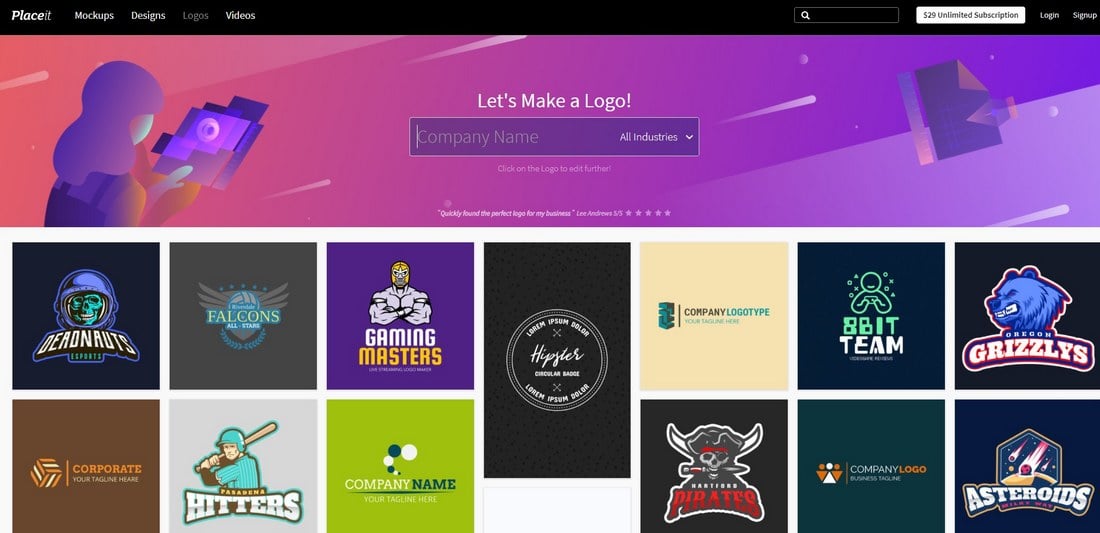
Placeit is one of the most affordable and powerful online tools you can use to create a logo with ease. The tool lets you choose from hundreds of pre-made logo templates and easily customize them online using its editor to change colors, text, and shapes to match your brand. Then you can download the logo by subscribing to the service for $29 per month.
Placeit is extremely easy to use and features lots of high-quality and unique logo designs you can use to create logos for any kind of a business, website, or brand.
Canva

Canva is an online tool mostly used to create social media graphics and blog content. However, it also includes a collection of logo templates that you can customize using the tool. While you can design and download the logo using Canva for free, you'll have to subscribe to its premium plan at $12.95 per month to download the logos with transparent backgrounds.
DesignEvo
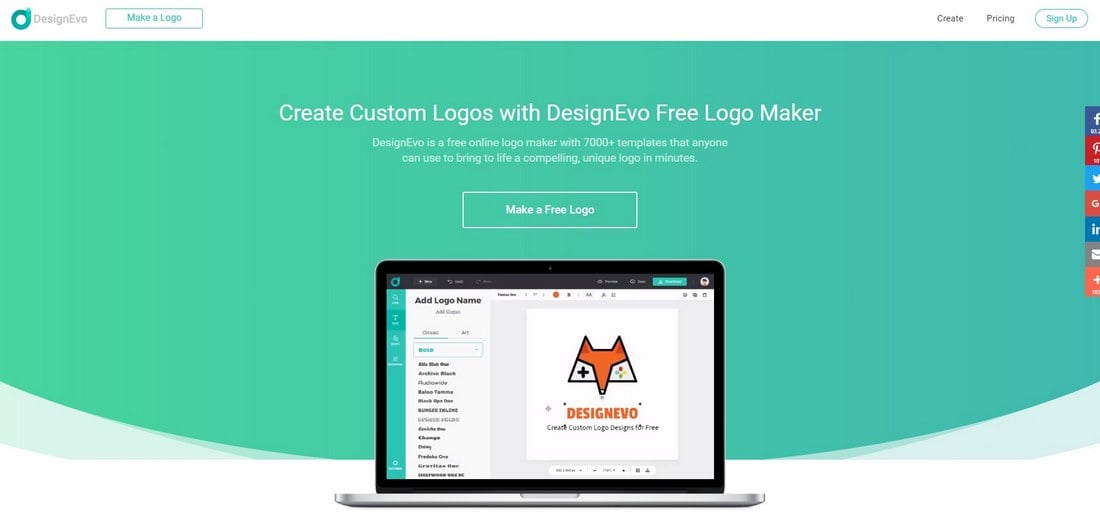
DesignEvo is another popular online logo maker tool that boasts over 7000 logo templates in its directory. The tool is quite easy to use and it has a collection of decent logo templates. Much like Canva, you also need to pay a one-time fee of $29.99 to download your logo in high-resolution and with a transparent background.
Looka
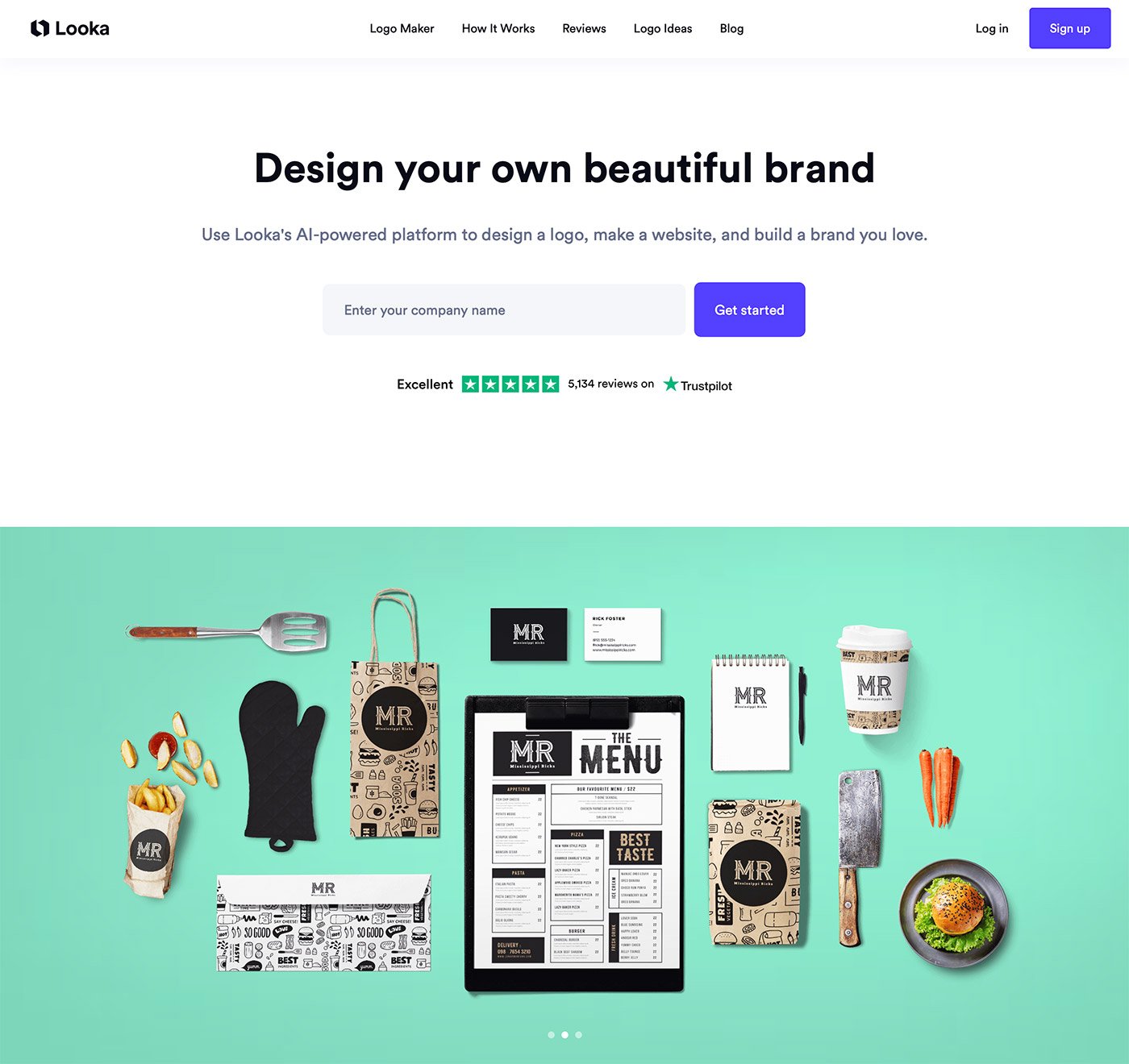
Looka works similar to DesignEvo but comes with more expensive pricing. To download a single logo design in low-resolution, it costs $20 and charges $65 to download your logo design in multiple file formats. Although, Looka does give you access to a collection of high-quality logo templates.
Inkscape
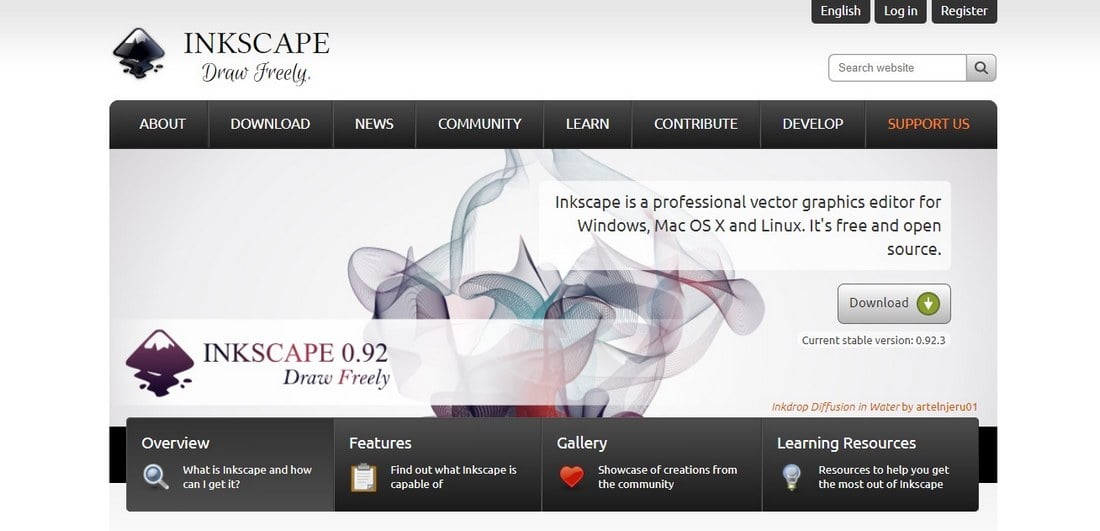
Inkscape is an open-source vector graphics editor, that works similar to Adobe Illustrator. The app is completely free to download and use. It has versions for Windows, Mac, and Linux. However, using the app to design logo can be challenging and it requires a bit of a learning curve.
GIMP

GIMP is the free alternative to Photoshop that many designers also use for their professional work. GIMP is an open-source image editor that functions just like Photoshop. Except the app is completely free to download and use. The app is available on Windows, Mac, and Linux.
Logo Templates + Kits
If you already have Photoshop or Illustrator installed on your computer, then you can use logo templates to create a professional looking logo by yourself.
There are ready-made logo templates you can download at an affordable price. These templates are available in either Photoshop or Illustrator format. You simply open the file in your preferred app and then with a few clicks you can edit the text and colors of the design to personalize the logo design.
Once you're done, you can export the final design in any format you want.
These logo templates are designed by professionals following the proper design techniques, trends, and standards of logo design so that you don't have to worry about them.
To show you how amazing logo templates look, here are a few examples.
Flying Eagle Luxury Logo Template

A great logo template you can use to design a luxury logo for a high-end brand or hotel. It comes in vector file format.
Vintage Logo Templates Bundle
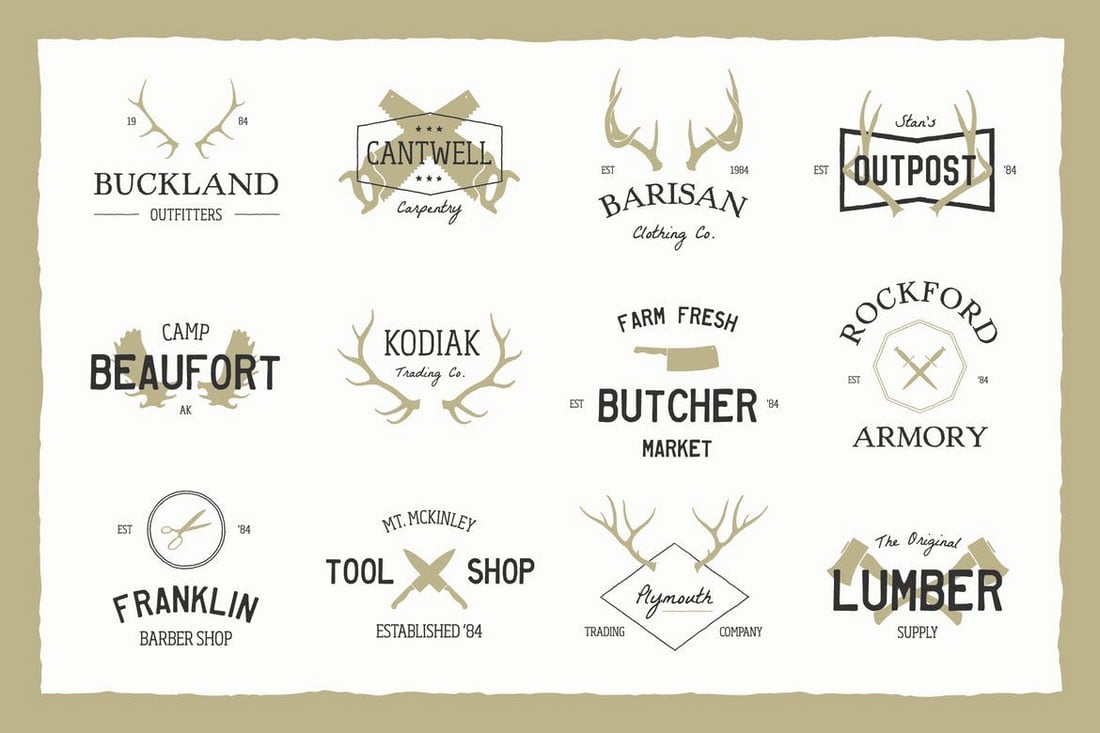
This bundle comes with 12 logo templates featuring classic vintage designs. It also includes 11 geometric shapes, 7 antler sets, and 10 knives and blades separately for crafting your own logo designs.
Line Badges & Logo Templates

This template kit includes a set of beautiful and minimalist line badges you can use to design simple logos for various types of modern brands. You can easily change the colors as well.
Heraldic Crest Logo Templates

Another set of logo templates for luxury brands. These templates feature elegant emblem-style logos in both PSD and EPS vector formats.
Monogram Alphabet Logo Templates

This bundle includes monogram logos based on each letter of the alphabet. There are 26 logo templates you can use to make logos for brands with any name.
Modern Logo Creator Kit

This bundle includes 9 pre-made logo templates featuring unique and modern designs. What makes it special is that it also includes 34 different shapes, 30 font combinations, and gradient swatches you can use to create your own logo design using either Photoshop or Illustrator.
Outdoor Logo Creator Kit
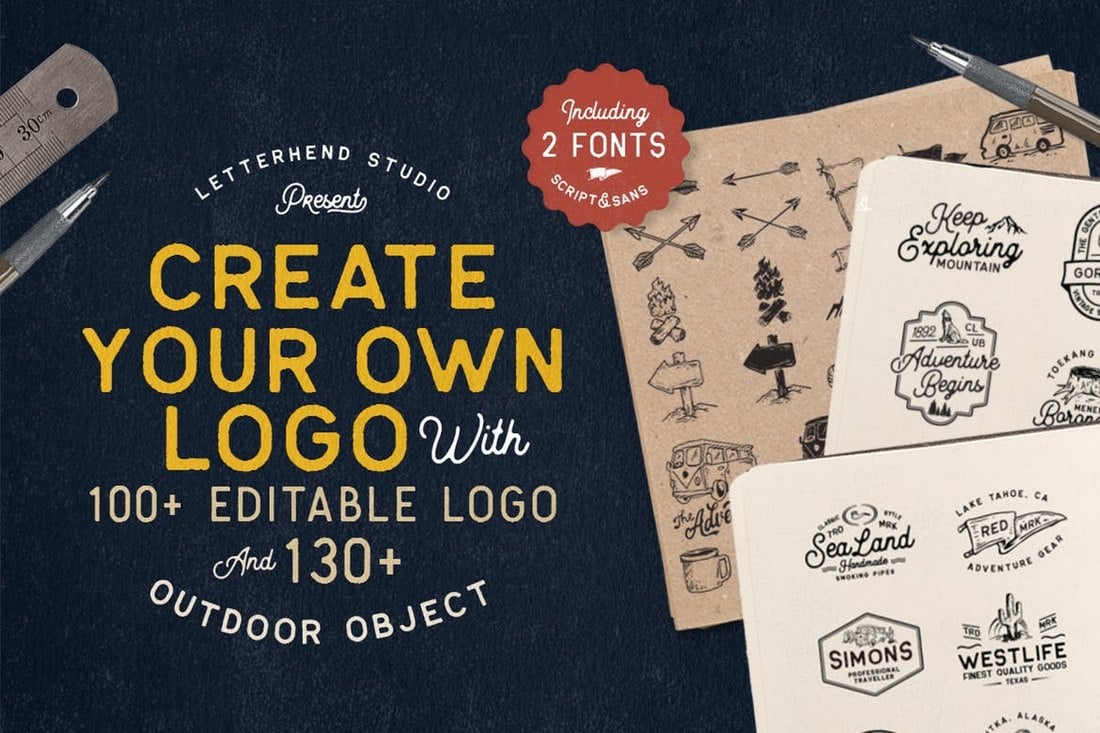
This is a logo designer bundle that comes with more than 100 pre-made and editable logo templates that you can also edit with Adobe Illustrator to customize the design however you like.
Watercolor Logo Creator Kit

This logo creator kit comes with 30 logo templates featuring beautiful watercolor inspired designs.
Minimal Logo Templates Bundle

This is a collection of minimalist and feminine logo templates. It includes 12 pre-made logo templates featuring various styles and in PSD format.
30 Premade Logos Bundle
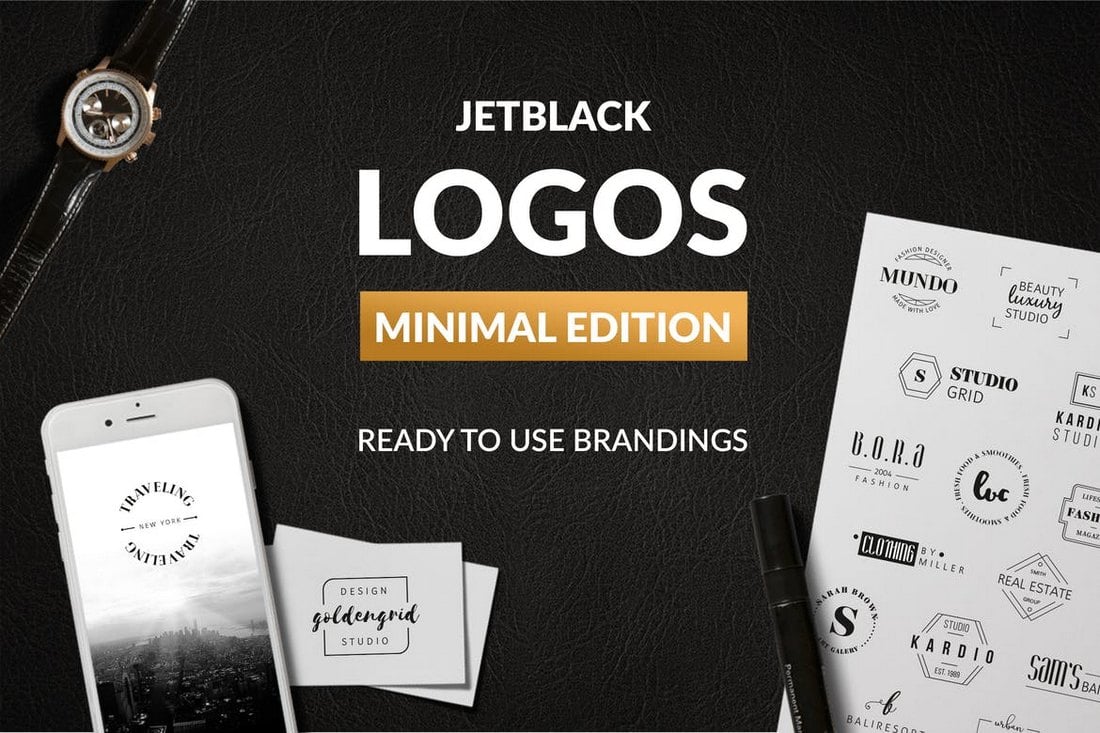
This bundle comes with 30 modern and minimal logos featuring various types of logo designs. All you have to do is download the pack and edit the templates to match your brand.
All of these templates are from Envato Elements. This site gives you access to over 700,000 design templates and unlimited downloads for a single price. Which is great for beginners since you get to test different designs before settling down with one logo design.
10 Tutorials to Design a Logo from Scratch
If you're passionate about logo design or on a low on budget, then you can also learn to design a logo from scratch. Thankfully, there are many informative and free tutorials on creating a logo, all just a Google search away.
Try starting your learning process with these tutorials and guides:
- How To Design A Modern Logo | Start To Finish (YouTube)
- Mastering Logo Design in Adobe Illustrator (YouTube)
- How to Design a Logo – Full Identity Design Course (YouTube)
- GIMP Tutorial: Design a Logo (YouTube)
- How To Design An Authentic Hipster Logo In Photoshop (YouTube)
- Photoshop | Logo Design Tutorial | Galaxy Logo (YouTube)
- How to Design Gradient-Based Logos in Adobe Illustrator
- How to design a logo | Adobe Illustrator CC
- Creating A Logo In Photoshop
- Learn To Design A Logo | Skillshare (Premium)
Hiring a Designer

The other and probably the easiest method for designing a logo is hiring a freelance designer.
Depending on the type of freelancer you're looking to hire and their level of experience, it could cost you somewhere between $150 to $2,000.
If you can afford it, hiring a designer will make things quite easier for you to get a high-quality logo designed without having to worry about all the aspects of logo design.
5 Places to Find a Logo Designer
Whatever you do, avoid platforms that offer super cheap logo designs at $5 dollars. It will be a waste of time and money. Most of the freelancers on those sites use templates and create low-quality designs that never live up to your expectations.
There are much better platforms for finding high-quality and reliable freelance designers.
Envato Studio

Envato Studio features a selection of handpicked designers. The platform only accepts designers after doing a thorough background check. Rest assured the designer you hire will provide an excellent service.
Envato Studio features freelance logo designers who charge rates at $60 and above. You can hire an excellent designer from this platform for a price of about $150.
99Designs

99Designs is another reputable platform that offers logo design services. You'll find different kinds of freelancers on this platform who offer logo designs of various styles.
The prices for freelancers will differ based on your project. Most of the time it will cost at least $150 or more.
Dribbble Designers
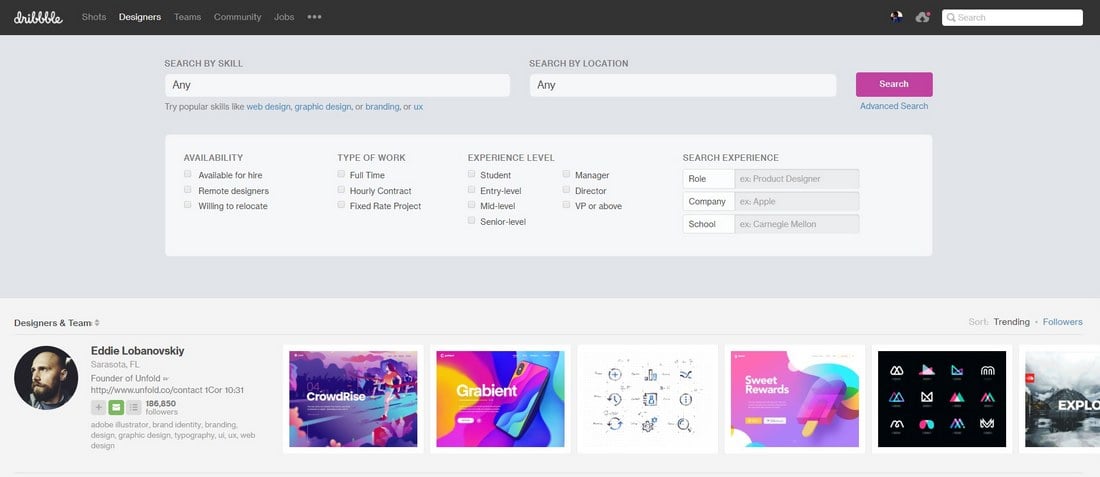
Dribbble has a powerful search system where you can explore all the designers registered with the platform. Using this service, you can find a designer based on your logo specifications and send them a message to ask for a quote.
DesignCrowd
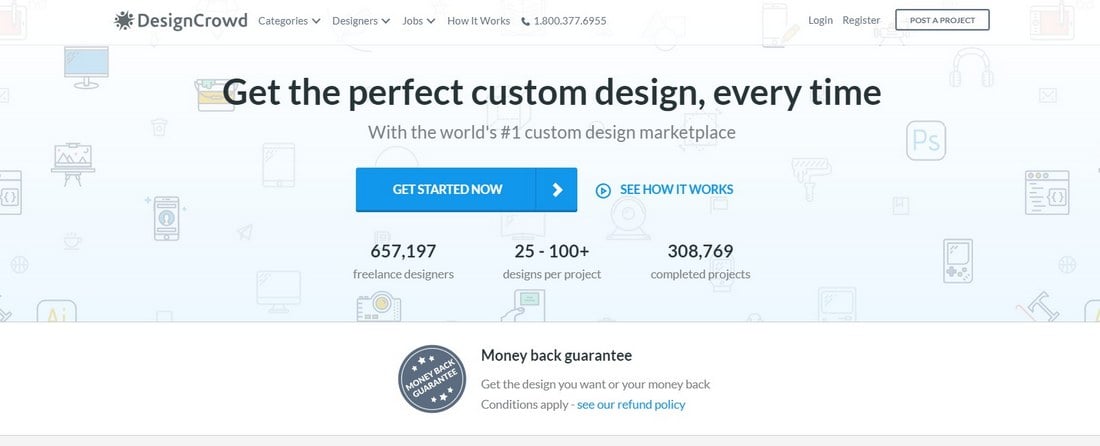
DesignCrowd is a large freelance designer marketplace featuring more than 600,000 designers of all kinds, including logo designers. You can post a project on the platform with a fixed budget to attract proposals from designers. The platform even offers a money-back guarantee.
Toptal

Toptal is an exclusive platform that only accepts the top 3% of freelancers. The site now features designers who offer logo design services. However, since the platform is limited to high-quality designers, they will charge expensive rates.
How to Create a Logo Design Specification
As we've discussed earlier in the guide, a logo design specification is about how you want the logo to be designed.
Before hiring a designer, you should prepare a logo specification to give the designer an idea on how you want the logo to be designed and what you expect it to look like.
Here are a few of the details you should include in your logo design specification:
- Logo type (eg: monogram, wordmark, etc)
- Use of colors (eg: brand colors, trends etc)
- Logo formats to include (eg: PNG, AI, SVG, etc)
- Dimensions (eg: vertical or horizontal, size of the logo)
- Logo font (eg: signature, script, etc)
- Use of the logo grid
- Also, ask for their thoughts and advice
Choosing the Final Logo
It's important that you ask the designer to create multiple versions of the logo or at least provide mockups for you to approve. This way you'll get more than one option to choose a better logo design.
Always make sure to consider your brand design, audience, brand mission, and other important aspects when choosing the final logo. Show it to your colleagues and friends for feedback. Because once you finalize the design, you won't be able to ask for any changes from the designer.
5 Logo Mistakes to Avoid
If you want to make sure that you don't make any costly mistakes when hiring a designer or choosing a final design, follow these tips.
1. Not Checking The Portfolio
Every freelance designer has a portfolio where they showcase the logo designs they've made for previous clients. Make sure to carefully review these designs before hiring to see how the designer approach logos, what kind of design styles they use, how they handle colors, font combinations, etc.
2. Choosing The Cheapest Designer
Sure, there are skilled freelance designers who will do the job at lower rates, but hiring the cheapest freelancer will only cost you even more than hiring the best.
Have you ever wondered how designers on $5 dollar gig websites process hundreds of orders in a day when other designers take days to design a single logo? Isn't it kind of suspicious?
3. Forgetting To Specify The Project Scope
Imagine writing a detailed logo specification for your designer but forgetting to mention the logo formats. And you end up getting a logo design only in raster format. This kind of mistakes could cost you a lot of money. Always double check your specifications and create a detailed project scope for the freelancer.
4. Not Checking For Duplicates
One of the downsides to hiring freelance designers online is there's no way for you to see how they work and how they find inspiration. There are freelancers who will design your logo by finding inspiration from other logo designs or even using templates.
If you're not careful enough, your final logo may end up making more trouble for your business and brand. Make sure the logo doesn't resemble the design of another logo. A great way to do this is to upload the logo image in Google Image Search and check for similar logo designs in the search results.
5. Hiring Overly Confident Designers
Much like every other industry, there are many overly confident and narcissist freelancers among designers. Hiring such a person will only lead to disputes, disagreements, and a logo design that the designer thinks is the best in the world.
Check for reviews and client feedback to see if this is the type of freelancer who delivers to satisfy the client.
Using Your Logo

It's time to use the logo you've designed. Hopefully, you took our advice and made the logo in multiple formats and sizes. Because, when it comes to marketing, you'll be using your logo with all kinds of marketing and branding material.
Including:
- Your website
- Stationary templates (eg- letterheads, envelopes)
- Printed merchandise (eg- business cards, flyers, banners)
- Video watermarks
- And more
If you want to see how your logo will look like in different types of printed documents and presentations, use logo mockup templates.
These templates are easy to edit and allows you to see how a logo design would look like in a real-world background setting like on a business card, website, or banner.
This way you can test the logo without messing up your website or wasting money on prints. Here are a few example logo mockup templates you can download from Envato Elements.
50 Logo Overlay Mockup Templates

Brand Identity Logo Mockup Templates
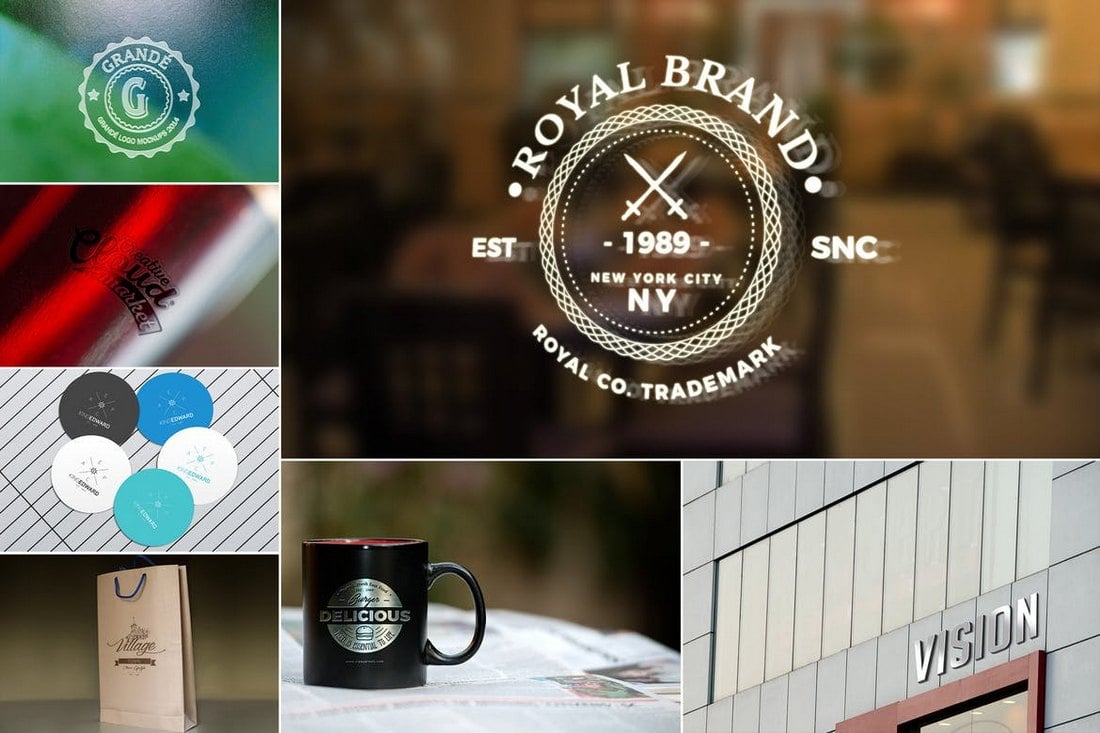
8 Modern Logo Mockup Templates
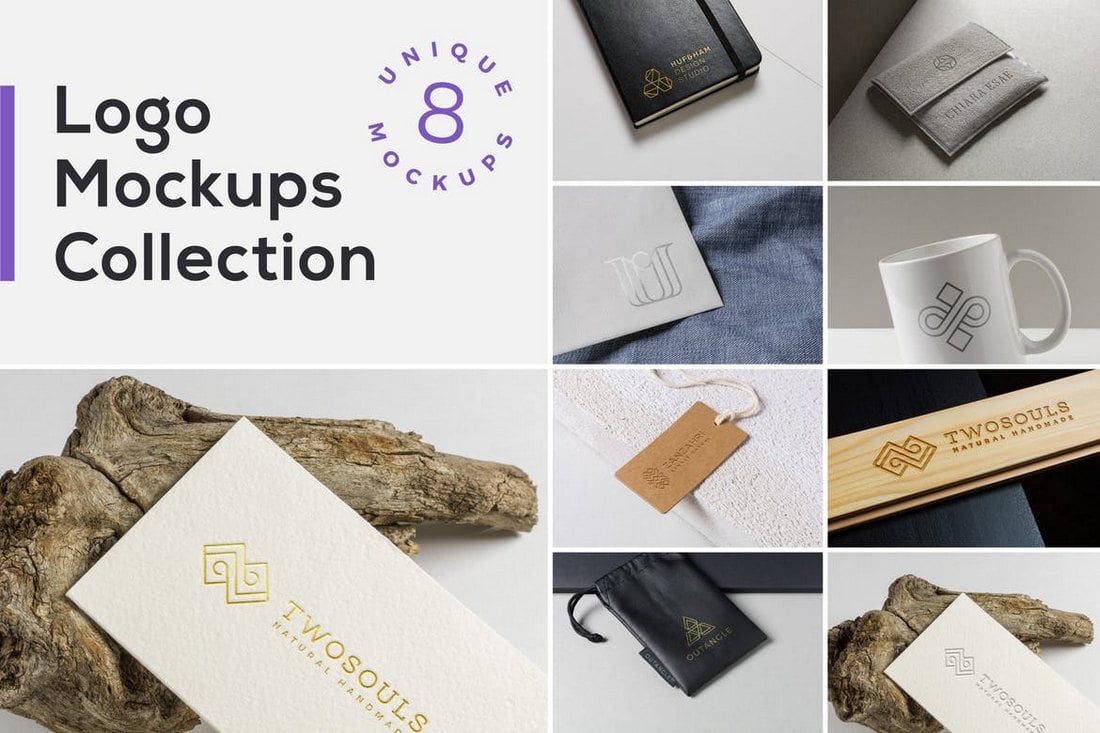
Craft and Cardboard Logo Mockups

Metallic Logo Mockups

Keep Improving
There's no such thing as a finished logo design. Just like the businesses themselves, the logo is something that needs to be improved over time.
Uber changed its logo four times in less than 5 years to adhere to the changes in the tech industry. Even CocaCola, one of the most trusted and reputable brands in the world, went through multiple iterations of logos over the years.
Don't be afraid to improve and change your logo in the future. Times change and so should your logo. Just remember to preserve the key features of the original design.
Best Logo Design Trends of 2021
As we mentioned earlier, understanding and following trends is an important part of designing a relevant and relatable logo for a brand.
While there are classic trends, like minimalist, retro, abstract, that never go out of style, you should also look to find inspiration from newer trends. It will allow you to craft a logo that's consistent with modern branding design.
Let's take a quick look at some of the newest trends you can incorporate with your own logos.
Simple Geometric Logos

(Credit: Bill Kenney)
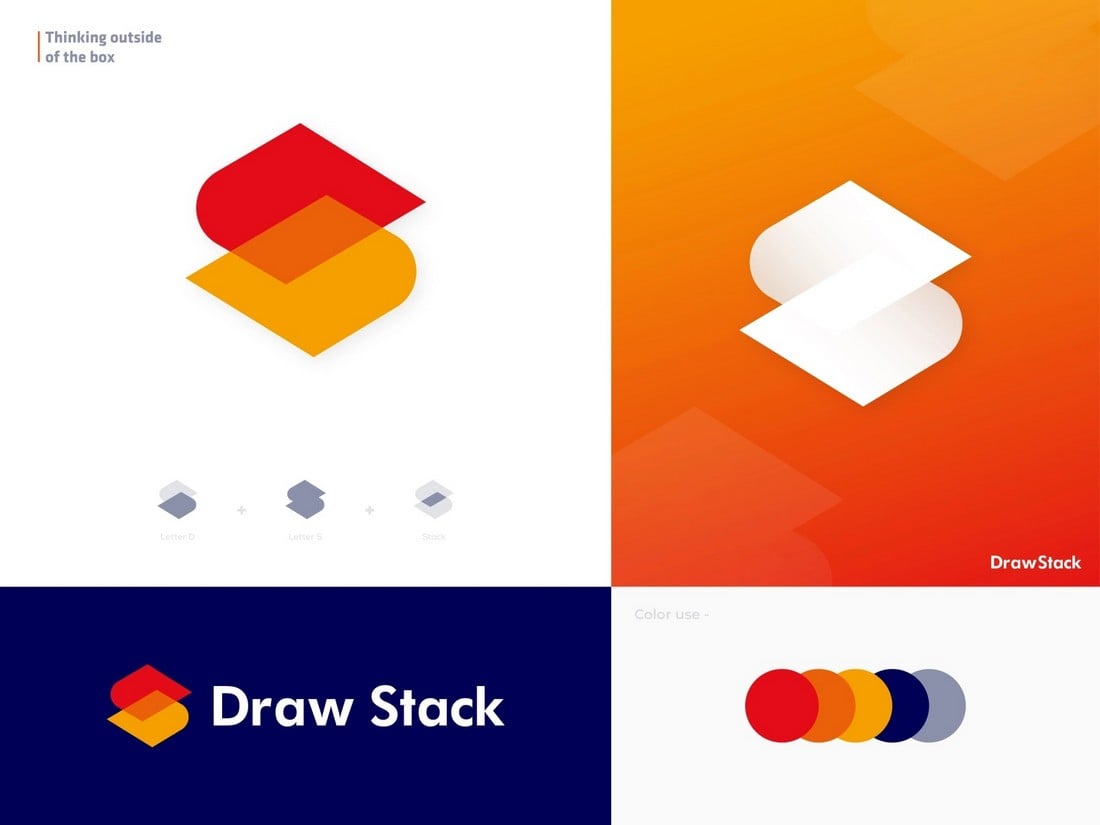
(Credit: Rl Rafiq)
Geometric logo design is nothing new but the newest approach to this logo style is combining simplistic abstract shapes with a geometric layout. The outcome is a beautifully minimalist logo unlike any other.
Slack and Atlassian logos are perfect examples of this trend. But you can go beyond the abstract shapes to craft more minimal geometric logo designs. Or mix other logo styles to craft something unique of your own.
Modernized Wordmark Logos

(Credit: Lance)

(Credit: Gert van Duinen)
Wordmark logos have been around for ages. The modernization of the wordmark logo takes this logo style in an entirely different approach.
Letters with manipulated designs, floating letters, overlapping text are just a few of the key elements you'll see in modern wordmarks. However, this fresh take on wordmarks is now quite popular among new and smaller brands that are willing to stand out from the crowd.
Gradient Logos

(Credit: musho)
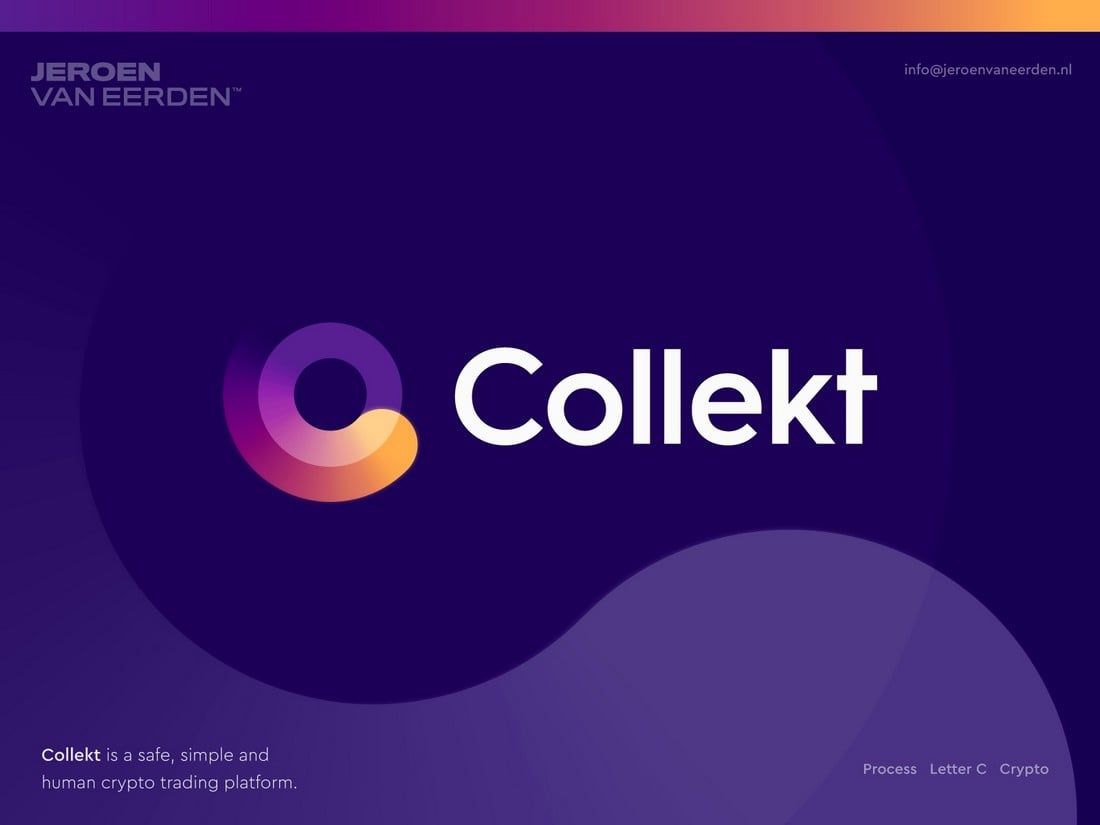
(Credit: Jeroen van Eerden)
Using gradient colors in logo design is another new trend that's growing rapidly among startups and agencies. There's much more to it than just colorful looks though.
Multicolored designs are a symbol of equality, inclusivity, as well as for representing different cultures. Many brands have embraced this concept over the years.
Although, in some cases, the gradient color logo designs are just about giving a trendy look to the brand.
Minimal Emblem Logos
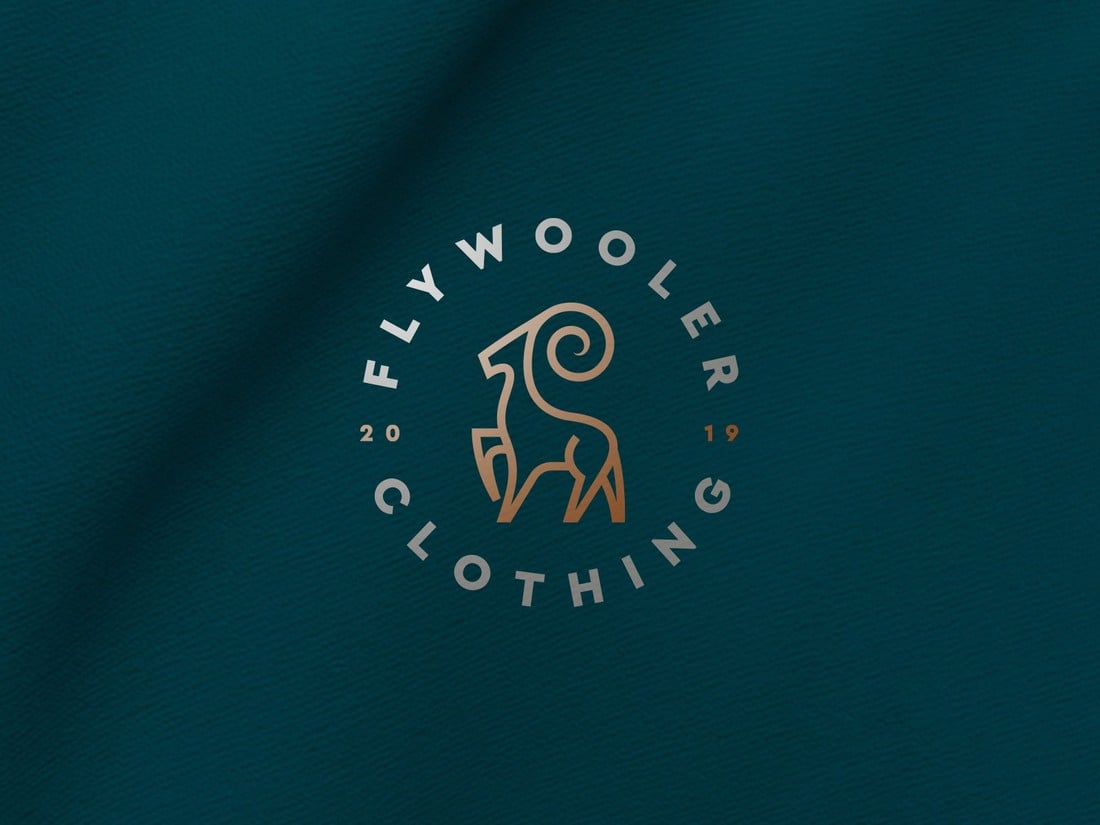
(Credit: Ahmed creatives)

(Credit: PATT POSII)
Warner Brothers, Starbucks, Harley Davidson are all known for their sophisticated emblem logos. The modern take on this logo style is much simpler and minimal.
The minimal emblem logo features fewer elements and shapes while achieving the emblem layout with other forms. Even the symbols and illustrations used in modern emblems have clean and minimal designs.
Isometric Logos

(Credit: Milon Ahmed)

(Credit: MaDeg)
Logos with 3D-like isometric views is another new trend you'll come across in logo design. This new approach gives brand logos a modern and stylish look. And it's especially popular among technology companies and startups.
Crafting an isometric logo requires a fresh perspective. You need to look at the brand identity and manipulate shapes to create somewhat of an optical illusion. It's certainly a challenge for designers but the outcome will be amazing.
Complex Logos

(Credit: Emir Ayouni)
The general approach to crafting modern logos is to make them as simpler as possible. Even brands, like Firefox and Uber, that used to have simple logos have refreshed their logos with even simpler ones. As a result, the new trend of sophisticated logo designs is only used by bold risk-takers.
While complex logos with lots of intricate details may not be a suitable choice for most brands, it certainly fits well with creative businesses. Like the above example, which was designed for a tattoo studio.
Symmetrical Logos

(Credit: Zaini Achmad)

(Credit: Rocky Roark)
Symmetrical logos are making a comeback but they are not the same. Brands like Volkswagon, McDonald's, Pepsi certainly rocked symmetrical logos for many decades. But the new trend uses a minimalist approach to symmetrical logos to achieve a modern and cleaner look.
In Conclusion
Our intention for this guide is to offer an in-depth look at how logo design works and offer non-designers more options for crafting a logo for their small business. We hope you'll use these lessons to make better decisions when creating logos in the future.
FAQs About Logo Design
There are many more areas in logo design that we couldn't cover here. These frequently asked questions about logo design will help you understand the process of crafting a logo better.
How Much to Charge for a Logo Design?
If you're a designer getting started in logo design, one of the first things you want to do is set the ideal price for your service. Always avoid falling into the same category as cheap $5-dollar logo designers on sites like Fiverr.
As a freelancer, you could charge anywhere from $300 to $3,000 to design a logo depending on how much work is involved. For example, some clients will ask for additional material like style guides and logos in multiple formats.
How to Sell a Logo Design to a Client?
Selling a logo that you've already designed takes a lot of work, even when you have sent drafts and discussed details with the client. That's why presentation is key to selling any design to a client.
Use a great mockup scene to showcase the logo design in a realistic environment. Create a beautiful presentation explaining all the details you've put into the design. Craft a logo style guide. There's so much you can do to win over the client.
How to Copyright a Logo Design?
Securing your logo design and preventing other businesses from using similar designs is an important part of the branding process. With a trademark or copyright, you can ensure your logo design never gets stolen or duplicated.
If you're a business in the US, you can file copyright via the United States Copyright Office. You can fill out the application online and pay a small fee to submit the copyright. You can learn more here.
How to Design a Logo on a Mac?
It doesn't matter if you have a Windows PC or Mac, you can design logos using software like Photoshop, Illustrator, or Affinity Designer. These are available on both platforms. Or you can use an online logo maker that works directly on the browser. Check the logo makers section in this article to learn more.
How Long Does It Take to Design a Logo?
This is a difficult question to answer because it depends on each designer's workflow and design process to determine how long it takes to craft a logo. It could take weeks or months. A good agency will design a logo within 2 weeks while a bad one will design logos in less than 24 hours.
How to Design a Logo Using Paint
Source: https://designshack.net/how-to-design-a-logo/
0 Response to "How to Design a Logo Using Paint"
Post a Comment